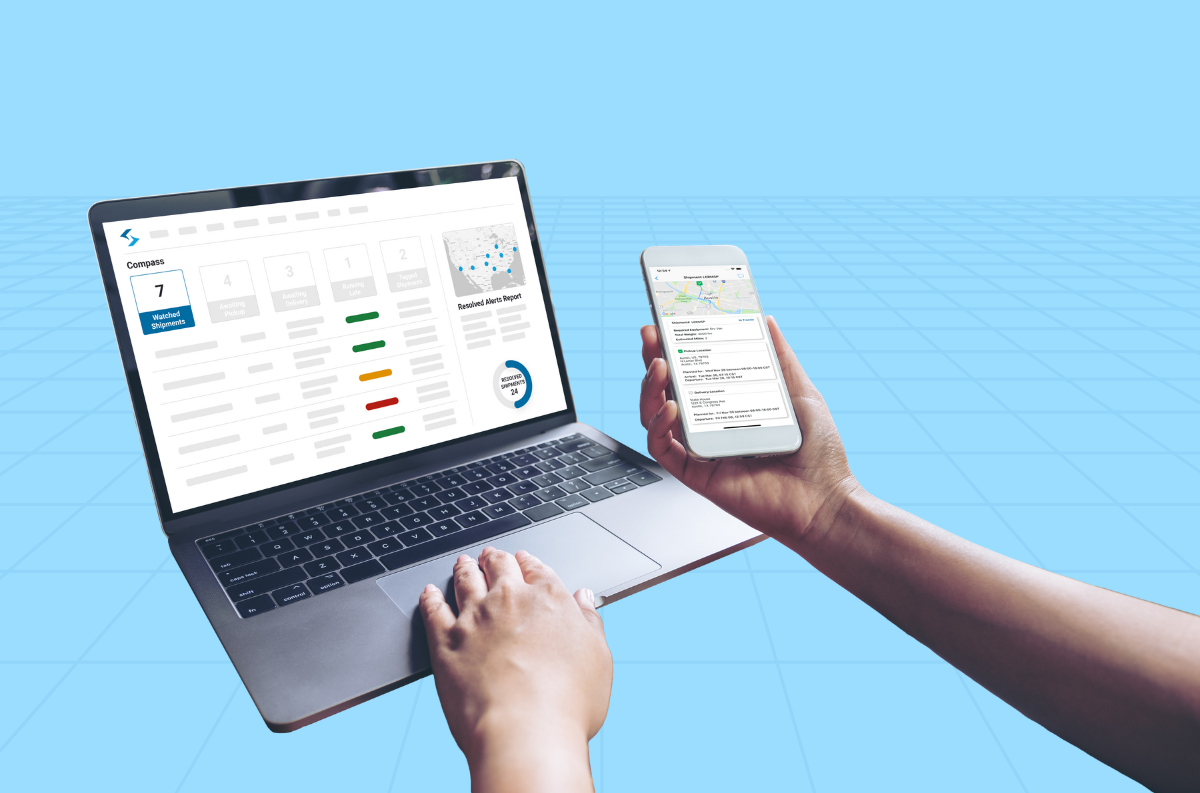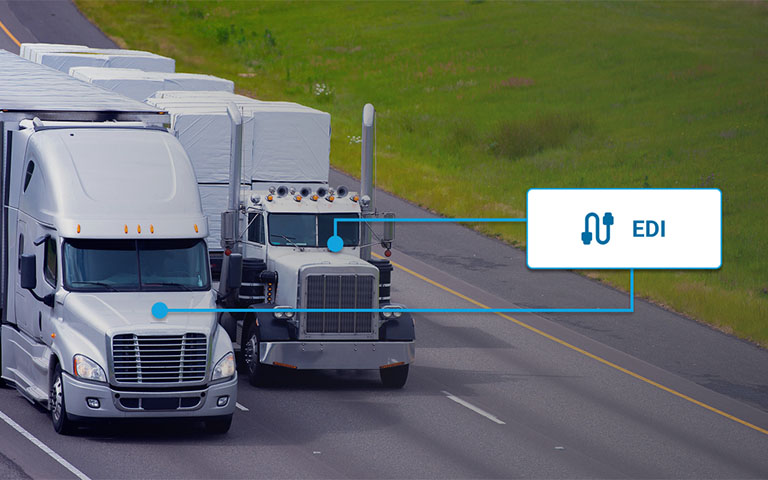Benefits of Implementing a Transportation Management System

Are you struggling to manage a complex network of suppliers and shipping routes? In today's competitive logistics landscape, where the average supply chain involves a vast network of companies and individuals, including producers, vendors, warehouses, transportation companies, distribution centers, and retailers, streamlining operations is crucial. Transportation Management Systems (TMS) offer a powerful solution, leveraging cloud technology to automate tasks and provide real-time insights.
Imagine reducing manual paperwork by 70% while optimizing routes for significant fuel savings. TMS software takes the guesswork out of logistics, allowing you to focus on growing your business. This guide explores the numerous benefits of TMS software, including cost reduction, improved efficiency, and enhanced customer service. Discover how a TMS can transform your supply chain and propel you towards greater success.
Streamlining Operations with TMS
A TMS is a comprehensive software solution designed to automate and streamline supply chain operations. By utilizing advanced technologies, TMS automates tasks like order management, carrier selection (based on cost, capacity, and service level), and load optimization. This minimizes manual work, reduces errors, and significantly improves operational efficiency. Real-time tracking and monitoring features provide complete visibility into your shipments, ensuring they're managed effectively throughout their journey.
Cost Savings Through TMS Implementation
One of the most compelling advantages of implementing a TMS is the significant cost savings it can deliver. Through route optimization and load consolidation, businesses can reduce transportation costs by 10-20%. Additionally, real-time data and analytics enable informed decisions regarding carrier selection and shipping options, leading to further reductions in freight spend. TMS software also contributes to environmental sustainability by optimizing routes and reducing fuel consumption.
Enhanced Visibility and Transparency in the Supply Chain
Imagine having complete visibility into your supply chain at all times. TMS software provides real-time tracking of shipments, allowing you to pinpoint their exact location at any given moment. This eliminates the guesswork and frustration of manual tracking. You can identify potential delays or disruptions early on, allowing proactive communication with customers and adjustments to plans. Improved collaboration with carriers and suppliers is another benefit. With a shared view of shipment progress through a centralized platform, everyone can work together to ensure timely and efficient delivery. This fosters stronger partnerships and reduces communication breakdowns.
Improved Customer Service with TMS
Exceptional customer service is a key differentiator in today's market. TMS empowers you to deliver on promises and build stronger customer relationships. Real-time tracking allows you to provide accurate updates throughout the delivery process. No more fielding "where is my shipment?" calls. You can proactively manage any delays or issues and communicate them to customers in advance, minimizing frustration and fostering trust. For example, if a shipment encounters unexpected weather delays, your TMS can spot this in advance and notify you to proactively reach out to your customer with an updated delivery timeframe. This transparency builds trust and demonstrates your commitment to exceptional service. With efficient communication and timely deliveries, you can exceed customer expectations and build lasting loyalty.
Optimized Route Planning and Load Consolidation
Fuel costs and delivery times are major concerns in logistics. TMS software helps you address both through optimized route planning and load consolidation. By analyzing factors like distance, traffic patterns, vehicle capacity, and fuel efficiency, a TMS can create the most efficient routes for your deliveries. This reduces travel time and fuel consumption, leading to significant cost savings and a smaller environmental footprint. Load consolidation allows you to maximize truck usage by filling them to capacity. Imagine combining multiple shipments into optimized loads instead of sending out half-empty vehicles. This reduces the number of trips needed, lowers transportation costs, and minimizes your environmental impact. By optimizing routes and consolidating loads, TMS software empowers you to achieve faster delivery times, reduce costs, and operate more sustainably.
Real-Time Tracking and Monitoring of Shipments
Proactive problem-solving is essential for efficient logistics. Real-time tracking and monitoring features of a TMS allow you to identify potential issues before they escalate. For example, if a shipment is delayed due to traffic congestion, you can quickly identify an alternative route or communicate the delay to your customer proactively. This allows you to minimize disruptions and take corrective actions to ensure timely delivery. TMS software also provides detailed analytics on your transportation performance. You can identify areas for improvement, such as optimizing routes for specific regions or carriers, or analyzing which carriers consistently perform well. By leveraging these insights, you can continuously refine your logistics strategy for maximum efficiency, reduce costs, and improve on-time delivery rates.
Increased Efficiency and Productivity with TMS
In today's fast-paced business environment, every minute counts. TMS software automates a wide range of time-consuming tasks, such as order management, carrier selection, and document generation. This frees up your staff to focus on higher-level strategic activities like building relationships with carriers and negotiating better rates. Imagine the time saved by automating tasks like manually entering order details or searching for the most cost-effective carrier for each shipment. By streamlining workflows and eliminating manual errors, TMS empowers your team to do more.
Minimal Documentation
Paperwork can be a major bottleneck in logistics. TMS software eliminates the need for manual paperwork by generating electronic bills of lading and shipping labels. This streamlines the entire shipping process and saves valuable time for your team. Imagine the time saved by not having to manually fill out and print physical documents for each shipment. Centralized document management within the TMS system also simplifies audits and compliance processes. You can easily access and track all shipment documents electronically, ensuring you have all the necessary documentation readily available. This reduces the risk of errors and fines associated with misplaced or missing paperwork, giving you peace of mind. By eliminating manual documentation and centralizing document management, TMS streamlines processes, saves time, and ensures compliance.
FAQs
Q: What are the benefits of transportation management?
A: Transportation management offers a multitude of benefits, including streamlined operations, cost savings, enhanced visibility, improved customer service, optimized route planning, real-time tracking, increased efficiency, and minimal documentation.
Q: What does a transportation management system accomplish?
A: A transportation management system automates and optimizes various tasks within the supply chain, including order management, carrier selection, route planning, and real-time tracking.
Q: What is the objective of a transport management system?
A: The objective of a transport management system is to streamline transportation operations, reduce costs, improve efficiency, enhance visibility, and ultimately, deliver superior customer service.
Q: What are the benefits of collaborative transportation management?
A: Collaborative transportation management offers benefits such as cost savings through shared resources, improved shipment visibility, and enhanced efficiency through better coordination among stakeholders.
Q: What are the advantages and disadvantages of using a transportation management system?
A: Advantages include cost savings, improved efficiency, and better customer service. Disadvantages may include initial implementation costs and potential resistance to change from employees, and sometimes investing in the wrong TMS for your business needs. Not every TMS is a one-size fits all solution. Use our checklist to help find the best fit for you!
Q: What are the four basic functions of transportation management?
A: The four basic functions of transportation management are planning and decision-making, transportation execution, transport follow-up, and measurement and evaluation.
In conclusion, implementing a TMS offers a multitude of benefits for businesses seeking to optimize their supply chain. From streamlining processes and reducing costs to improving customer service and enhancing visibility, TMS software is a powerful tool for modern logistics management. Don't get left behind! Explore our comprehensive TMS solutions at www.shipwell.com.


.svg)








